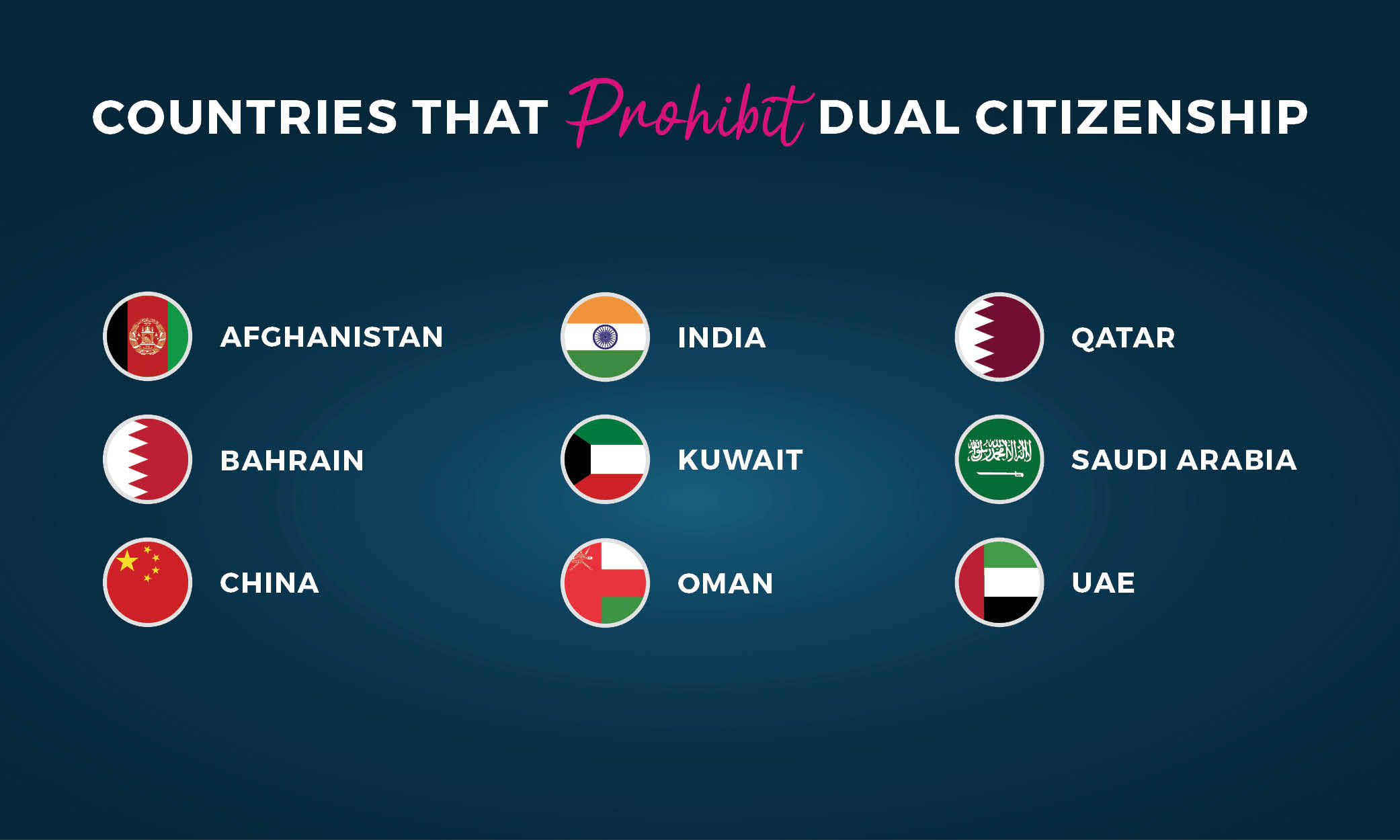Jump to other articles:
How to Get Dual Citizenship in 2024

Is obtaining dual citizenship on your to-do list? With the world becoming increasingly interconnected through globalization, it’s not uncommon for someone to hold more than one passport. This is also known as dual nationality and describes someone who is a citizen of two countries at the same time.
What Are the Benefits?
One of the main advantages of dual citizenship is the ability to travel more freely. With a second passport, you can enter and exit both countries without the need for a visa. This can save you time and money, especially if you frequently travel between the two countries.
Dual citizenship also offers access to more employment markets. As a citizen of two countries, you can work in either country without needing a work visa. This can open up new career opportunities and boost your earning potential.
What Are the Disadvantages?
While there are many pluses to having dual nationality, there are also some minuses to take into account.
One of the main disadvantages is the potential for double taxation. This means that you may be required to pay taxes in both countries, which can be a significant financial burden. However, many countries have signed tax treaties which could mean you only pay tax in one of the two countries.
Another drawback is that countries have different agreements regarding dual citizenship in place. Argentina allows you to be a dual citizen, only if you’re a national of Italy or Spain. Certain countries don’t allow dual citizenship at all, which means you will have to renounce one citizenship to claim another.
Ways to Get Dual Citizenship in 2024
The process of obtaining dual citizenship varies depending on the countries involved. In general, there are four main ways to obtain dual citizenship: through birth, marriage, naturalization, or investment.
Birth
In some cases, you may automatically receive dual citizenship if you are born in a country that grants citizenship based on birthplace. For example, if you are born in the United States to non-citizen parents, you are automatically granted US citizenship. However, this is not the case for all countries, so it’s important to research the laws of the countries involved to find out if birthright citizenship is available.
This is based on the Latin jus soli concept relating to “right of soil”. It’s the opposite of jus sanguinis, “right of blood”, which sees citizenship based on descent. As in you can claim citizenship through the birthplace of your parents.
Marriage
In some cases, you may be able to obtain dual citizenship through marriage. This typically involves marrying a citizen of another country and then applying for citizenship in that country. The process and requirements for obtaining citizenship through marriage vary depending on the country.
Naturalization
Naturalization is the process of obtaining citizenship in a country through legal means. This typically involves living in the country for a certain period of time, passing a citizenship test, and meeting other requirements. You can first secure Residency by Investment, with a golden visa providing a gateway to citizenship if you fulfill various conditions.
Investment
This is the most direct route to citizenship. You can acquire Citizenship by Investment in countries ranging from Antigua and Barbuda to Vanuatu. The majority of the CBI programmes, however, are offered by Caribbean islands.
![]()

Is Dual Citizenship Right For You?
Perhaps you were born in a country that doesn’t allow you to hold more than one nationality. Before you contemplate renouncing your place of birth, remember that a golden visa can be just as valuable as a golden passport.
For Residency and Citizenship by Investment advice that’s more tailor-made to your specific needs, don’t delay and contact RIF Trust, your investment migration specialists, today.
 Back to News
Back to News